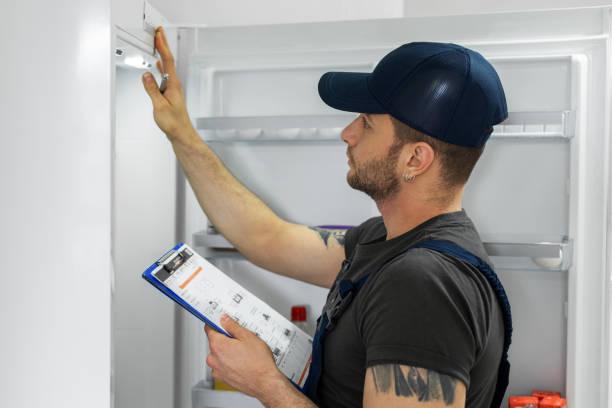Introduction
In today’s environmentally conscious world, prioritizing energy-efficient refrigerator maintenance not only saves money but also contributes to a greener lifestyle. Implementing eco-friendly practices in maintaining your refrigerator minimizes energy consumption and reduces your environmental footprint.
Optimal Temperature Management
Maintain recommended temperature settings to maximize efficiency. For refrigerators, typically set between 37°F to 40°F, while freezers are best around 0°F. Consistent temperatures ensure energy-efficient operation, showcasing the significance of temperature control in refrigerator maintenance.
Seals and Gaskets Maintenance
Well-maintained seals and gaskets prevent cool air from escaping. Check for wear and tear, ensuring they create a tight seal. Properly sealed doors are essential in minimizing energy loss and are key components of energy-conscious refrigerator maintenance.
Regular Defrosting and Cleaning
Excessive ice buildup impedes efficiency. Defrosting freezers when ice exceeds a quarter-inch maintains optimal performance. Regularly clean coils to facilitate proper airflow and prevent energy waste, emphasizing the role of cleanliness in energy-efficient refrigerator maintenance.
Energy Star and Efficient Appliances
Consider Energy Star-rated appliances when purchasing or upgrading. These models are designed for optimal efficiency, reflecting the importance of appliance selection in energy-conscious refrigerator maintenance.
Conscious Consumption
Organize the refrigerator efficiently to reduce frequent door openings. Every time the door opens, cool air escapes, forcing the appliance to work harder. Being mindful of usage patterns is a part of responsible refrigerator maintenance.
Conclusion
Prioritizing energy-efficient practices in refrigerator maintenance isn’t just about cost savings—it’s a commitment to reducing environmental impact. By adopting these eco-friendly approaches, you’re not only preserving your appliance’s efficiency but also contributing positively to a more sustainable future.


